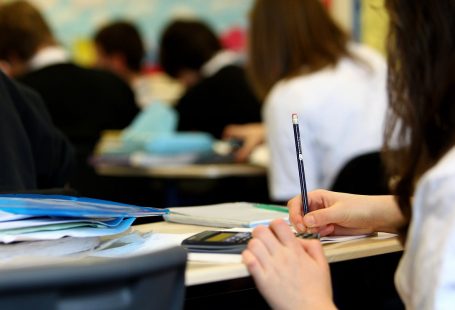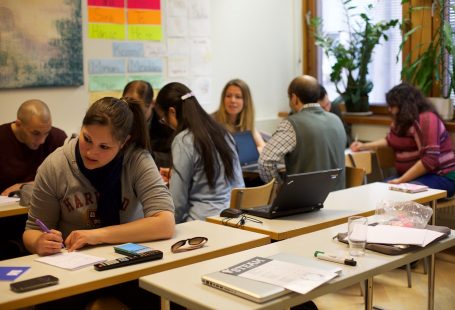British children are required by law to have an education until they are 16 years old.
Education is compulsory, but school is not, children are not required to attend school. They could be educated at home.
1996 Education Act of the UK“The parent of every child of compulsory school age shall cause him to receive efficient full-time education suitable- (a) to his age, ability and aptitude, and either by regular attendance at school or otherwise.” About 94 per cent of pupils in England, and the rest of the UK, receive free education from public funds, while 6 per cent attend independent fee paying schools. All government-run schools, state schools, follow the same National Curriculum. The school year is 39 weeks long and is divided into six terms:
The main school holidays are:
There are also one week holidays:
In general, children start school on the first day of term after they turn 5. At the age of 11, they move on to regular high schools, known as secondary schools. British children are required to attend school until they are 16 years old. At the age of 16, students write an examination called the GCSE (General Certificate of Secondary Education). All students are tested in mathematics, English literature, English composition, chemistry, biology, physics, history or the Classics, one modern language, and one other subject, such as art or computer studies. After completing the GCSE, some students leave school, others go onto technical college, whilst others continue at high school for two more years and take a further set of standardized exams, known as A levels, in three or four subjects. These exams determine whether a student is eligible for university. Children’s education in England is normally divided into two separate stages. They begin with primary education at the age of five and this usually lasts until they are eleven. Then they move to secondary school, there they stay until they reach sixteen, seventeen or eighteen years of age. |










